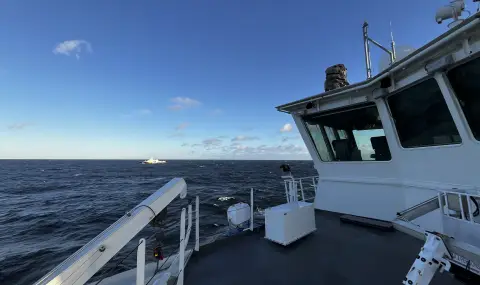NATO will launch an operation to protect critical facilities in the Baltic Sea with the participation of up to ten warships at the end of the week, reports the Finnish portal Yle, quoted by the Focus agency.
The decision comes in response to suspicions of sabotage of underwater infrastructure cables and power lines in the region.
„NATO will send ships that already operate in the Baltic Sea, as well as new ships from alliance member countries. In total, about ten ships will remain in the area until April“, the publication specifies. The vessels will be deployed near undersea power and data cables, with their main role being to deter threats.
Finland and Estonia will also strengthen security in the Gulf of Finland with the participation of their ships.
Evidence of sabotage
Finnish police said they had recovered an anchor from the seabed as part of an investigation into damaged undersea cables. The anchor was identified as having been lost by the Cook Islands-flagged tanker Eagle S, which was transporting Russian crude oil, BTA reported.
According to the Finnish National Bureau of Investigation, the location where the anchor was found coincides with the route of the Eagle S, which left a clear trace on the seabed. The tanker is suspected of damaging the Finnish-Estonian power line Estlink 2 and four telecommunications cables. Photos after the incident confirm that the ship is missing its port anchor.
Previous incidents in the region
Such incidents have become more frequent in the past year. In October 2023, the ship Newnew Polarbear damaged the Balticconnector gas pipeline and telecommunications cables. In November 2024, a telecommunications cable was severed between Sweden, Lithuania, Finland and Germany, and in September 2022. Nord Stream 2 has also suffered sabotage.
Enhanced security measures
In response to the growing threats, the Joint Force led by the United Kingdom announced its intention to use artificial intelligence to monitor ship traffic around critical infrastructure.
“We are following the investigations conducted by Estonia and Finland and stand ready to provide further support“, said NATO Secretary General Mark Rutte.
NATO's operation in the Baltic Sea will seek to prevent future incidents and ensure the security of key infrastructure projects in the region.
